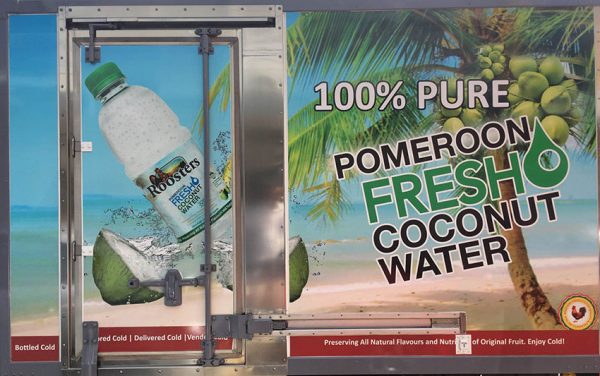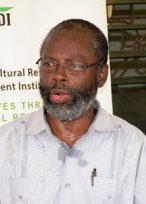Guyana’s coconut industry is to benefit from a contract signed between the Caribbean Agricultural Research and Development Institute (CARDI) and the Jamaican food technology consulting firm, Technological Solutions Limited (TSL), to revise the CARICOM Code of Practice and Standards for the packaging of natural coconut water. The current regional standard has been in place since 2010.
Under the new standard six areas have been identified for attention, including food safety evaluation; recognition of testing facility compliance; chain of custody for samples; sampling regime; testing protocols, procedures and sampling; and the testing environment.
The contract stipulates the holding of industry stakeholder meetings in Guyana, St. Lucia, the Dominican Republic, Suriname and Jamaica to address prevailing practices and issues in the sector, to analyse the latest technology being used, to assess the prospects for trade in the sector and to seek to determine how the Standards and Code of Practice can facilitate growth in the industry in selected territories in the region. The Guyana stakeholders meeting took place on Wednesday September 12.

The CARDI-hosted Georgetown Workshop, which was held at the Institute of Applied Science and Technology (IAST), Turkeyen, was opened by the Institute’s Representative in Guyana, Dr. Cyril Roberts. Participants included farmers, major manufacturers and exporters, as well as support service organizations, including the Government Analyst-Food and Drugs Department (GA-FDD), the Guyana National Bureau of Standards (GNBS) and the Environmental Protection Agency (EPA).
In his address, Dr. Roberts told participants that the main purpose of the forum was to secure from industry operatives an understanding of what their issues and challenges were, and how these could be addressed in the revised standards being developed by Technological Solutions. He indicated that an exercise would be undertaken to secure their inputs and to share with them relevant industry-related information.
In his address to the forum, TSL Director Dr. Andre Gordon said that while the discussions were expected to help inform the regional standards being crafted, another major objective of the discourse was to provide useful information to key industry players that could help them improve their practices and manufacturing processes, leading to an enhancement of their returns from the sector. Dr. Gordon also led a discussion that embraced the global market for bottled natural coconut water, as well as best practices for the industry. Additionally, he shared with the gathering, the findings of TSL’s in-house findings research and literature review on the issue. His presentation also addressed key aspects of the standards and some of the changes initially proposed from discussions so far, as he sought inputs from the participants on the various issues.
Input from the Georgetown forum, along with those already held in St. Lucia, Suriname and Jamaica and the forthcoming one in the Dominican Republic, will help to guide Guyana and other Caribbean territories in the development of a world class Natural Coconut Water Export industry, Dr. Gordon noted.
“This CARDI project is a continuation of the work we have been doing in this sector, including facilitating the resumption of trade in bottled coconut water by a major Guyanese exporter that had been barred, as well as the training of the Guyanese coconut water industry, the regulators (GA-FDD) and other stakeholders,” the TSL Director said in a subsequent pronouncement.
The value of the global coconut water industry was estimated at US$2.7 billion last year and is projected to reach US$8.3 billion by 2023. Technological Solutions has been contracted by the Guyana Government to conduct a series of workshops for coconut industry inspectors and analysts.
Recent significant growth in regional and global demand for coconut water has led to

a resurgence of local interest in the sector among both farmers and other investors. That interest has embraced concern with both increased yield and export positioning, as well as with food safety standards. Recently, controversy has arisen over standards-testing issues relating to coconut water exported from Guyana to Trinidad and Tobago.
The burgeoning worldwide demand for the product led the United Nations Food and Agriculture Organisation (FAO) to fund research into ways of objectively assessing the quality and potential shelf life of coconut water, as a means of decreasing the risk to health and economic losses should quality standards issues arise. Dr. Gordon is heading a research team that has embarked on a study of coconut water production aimed at improving quality standards.






